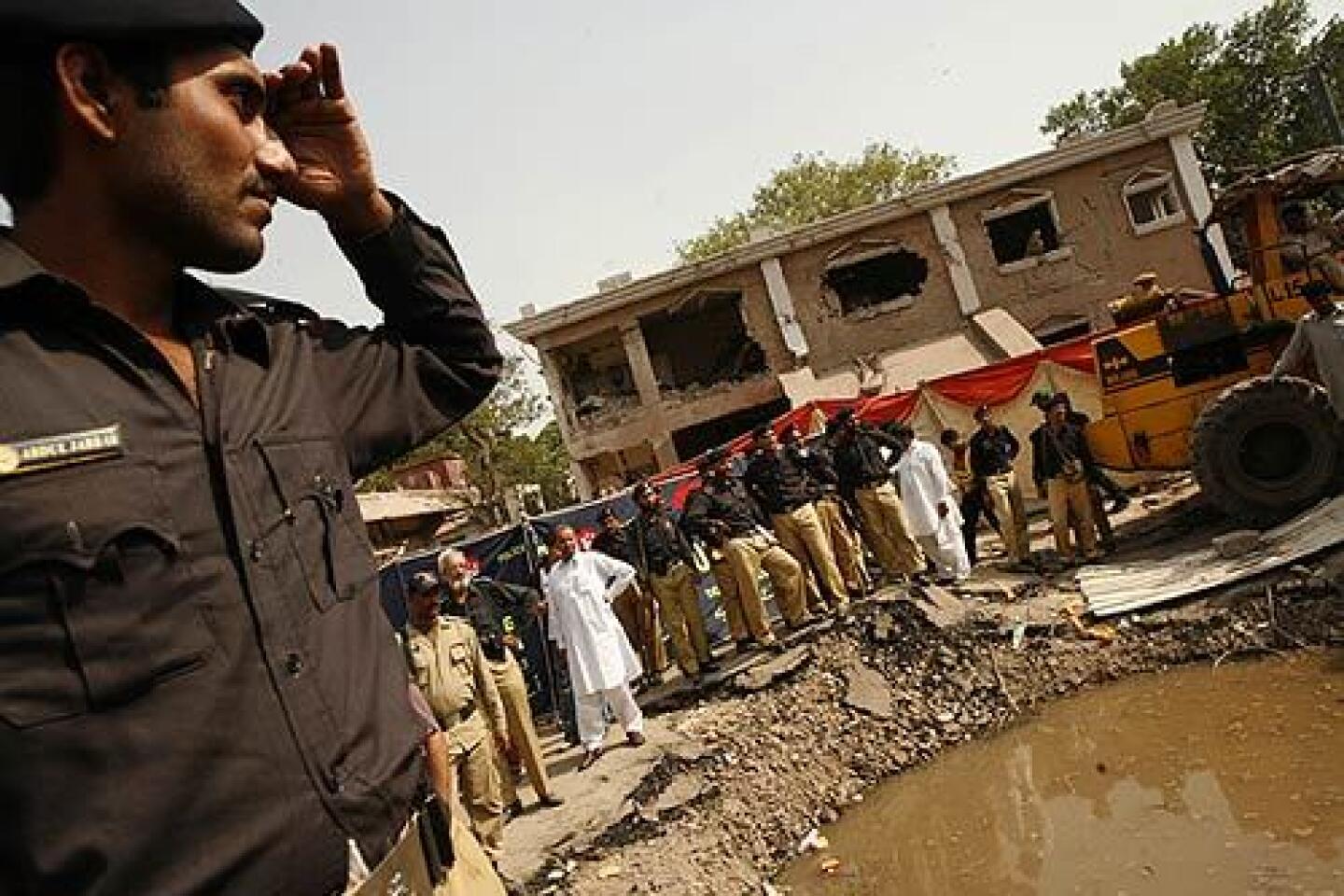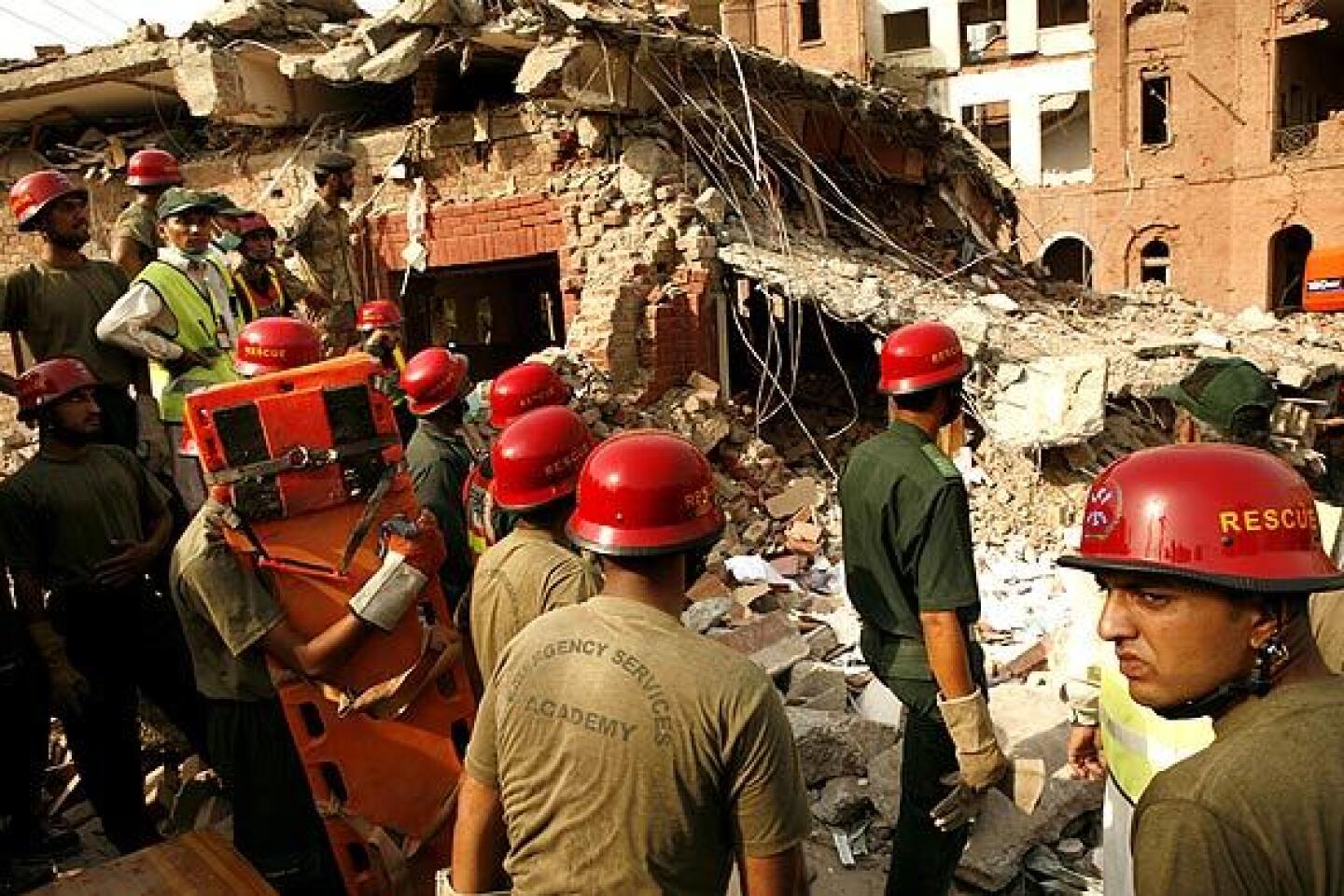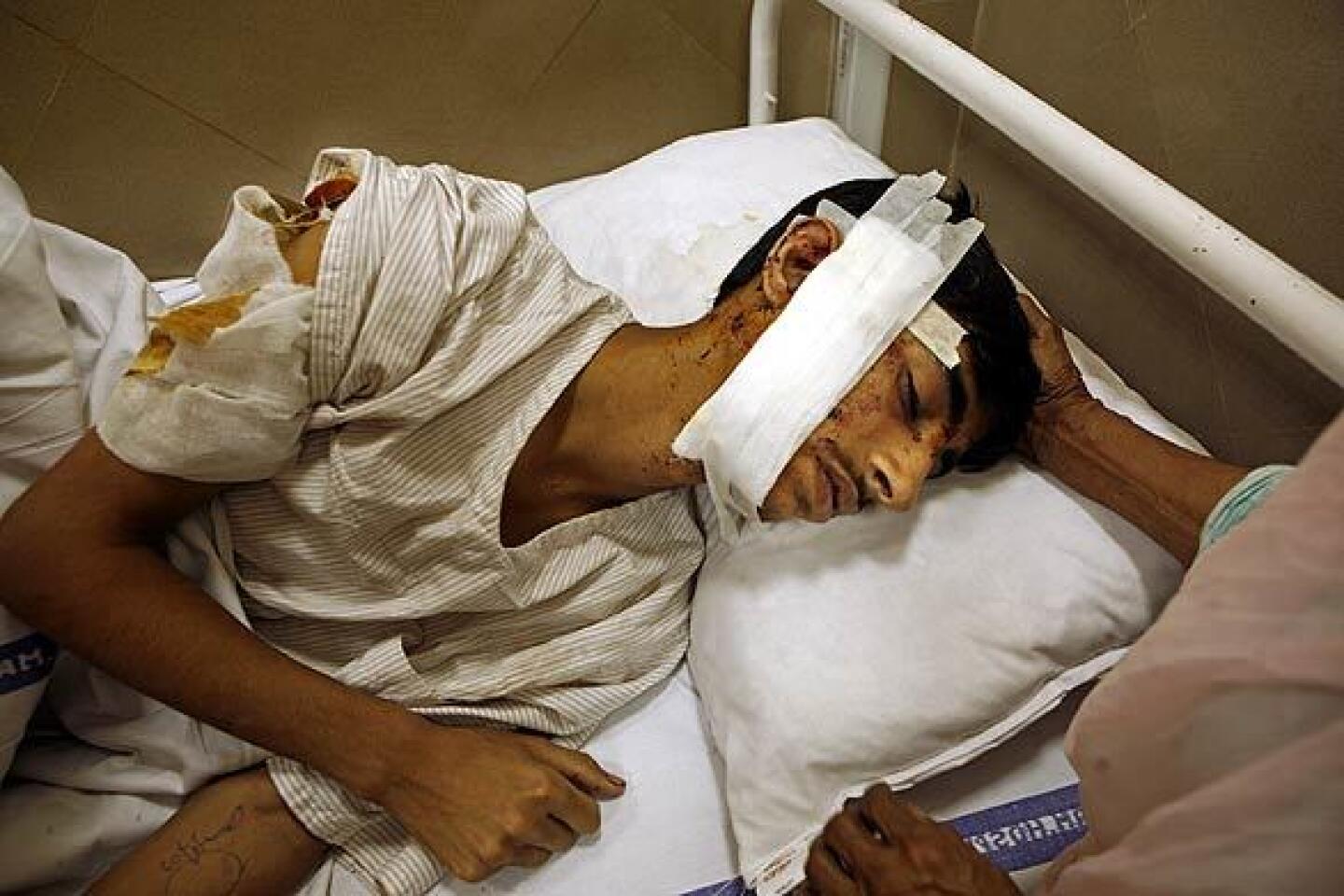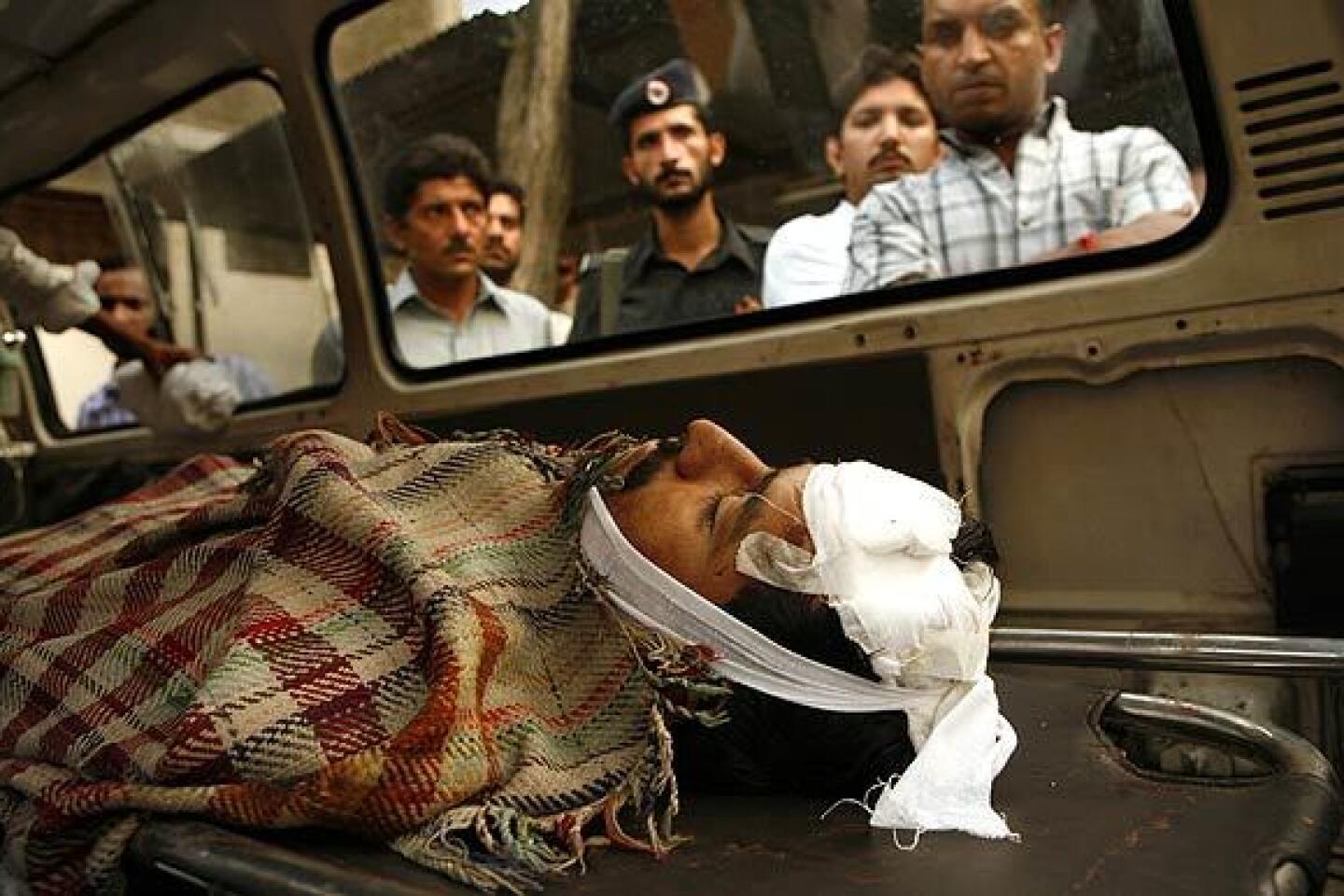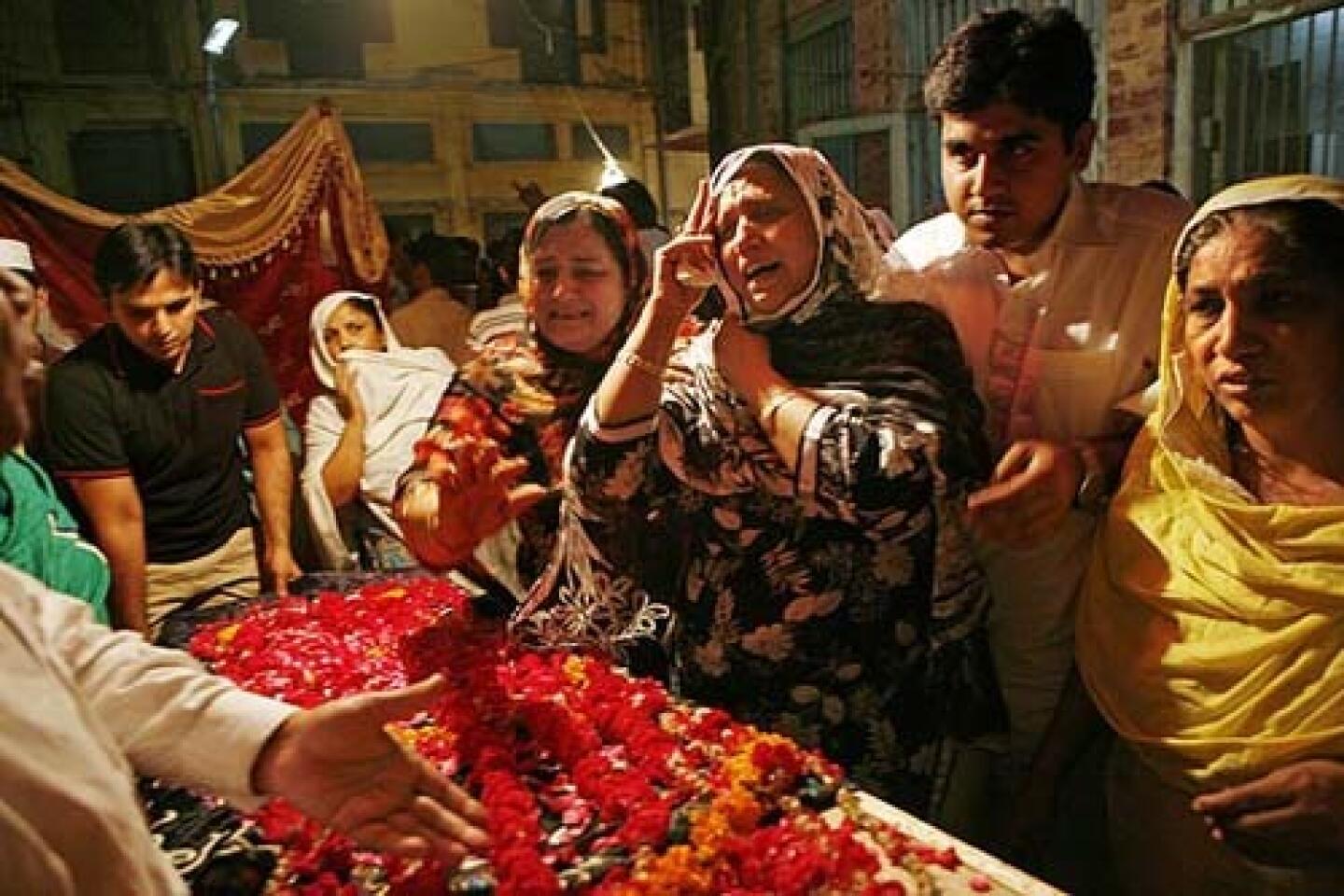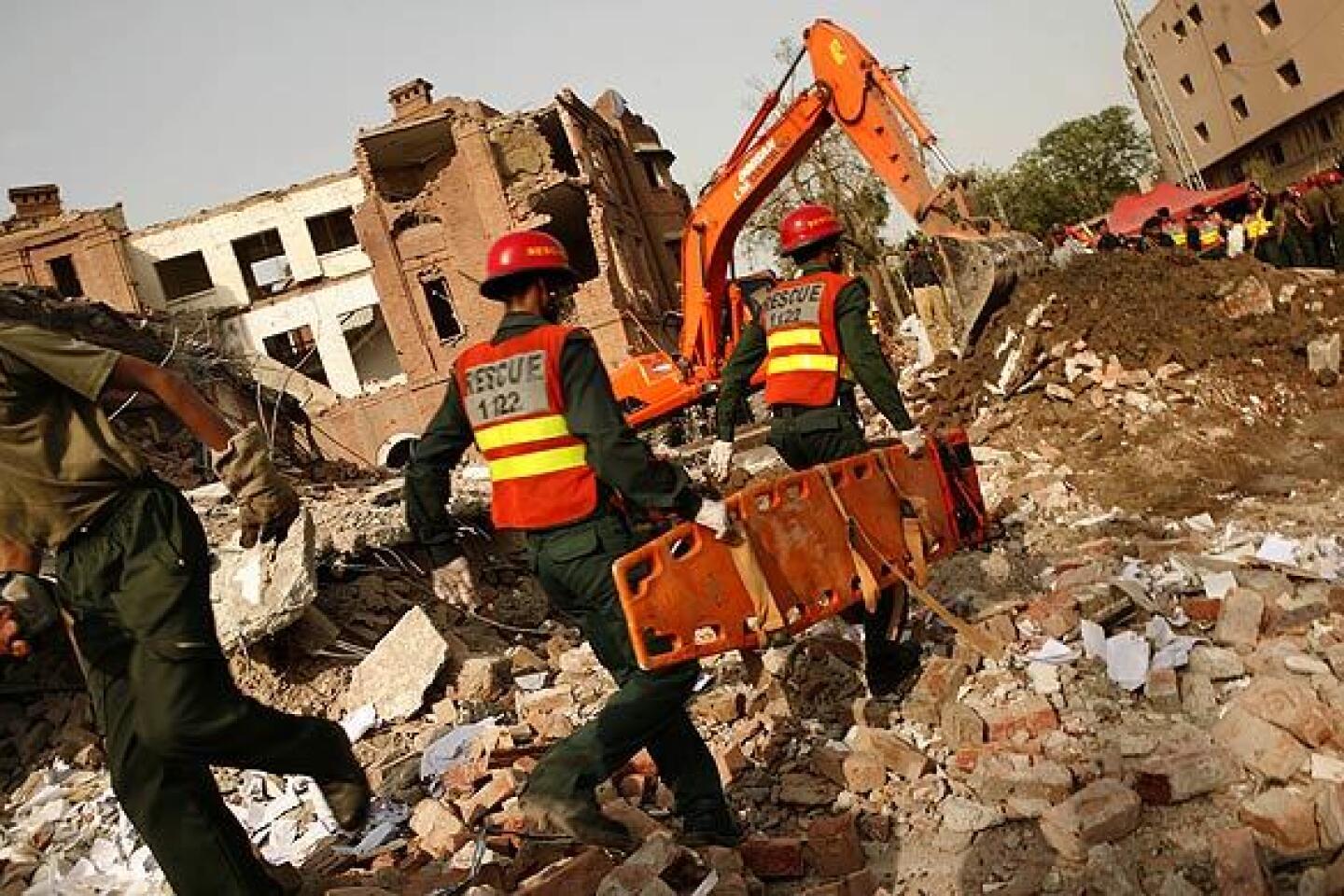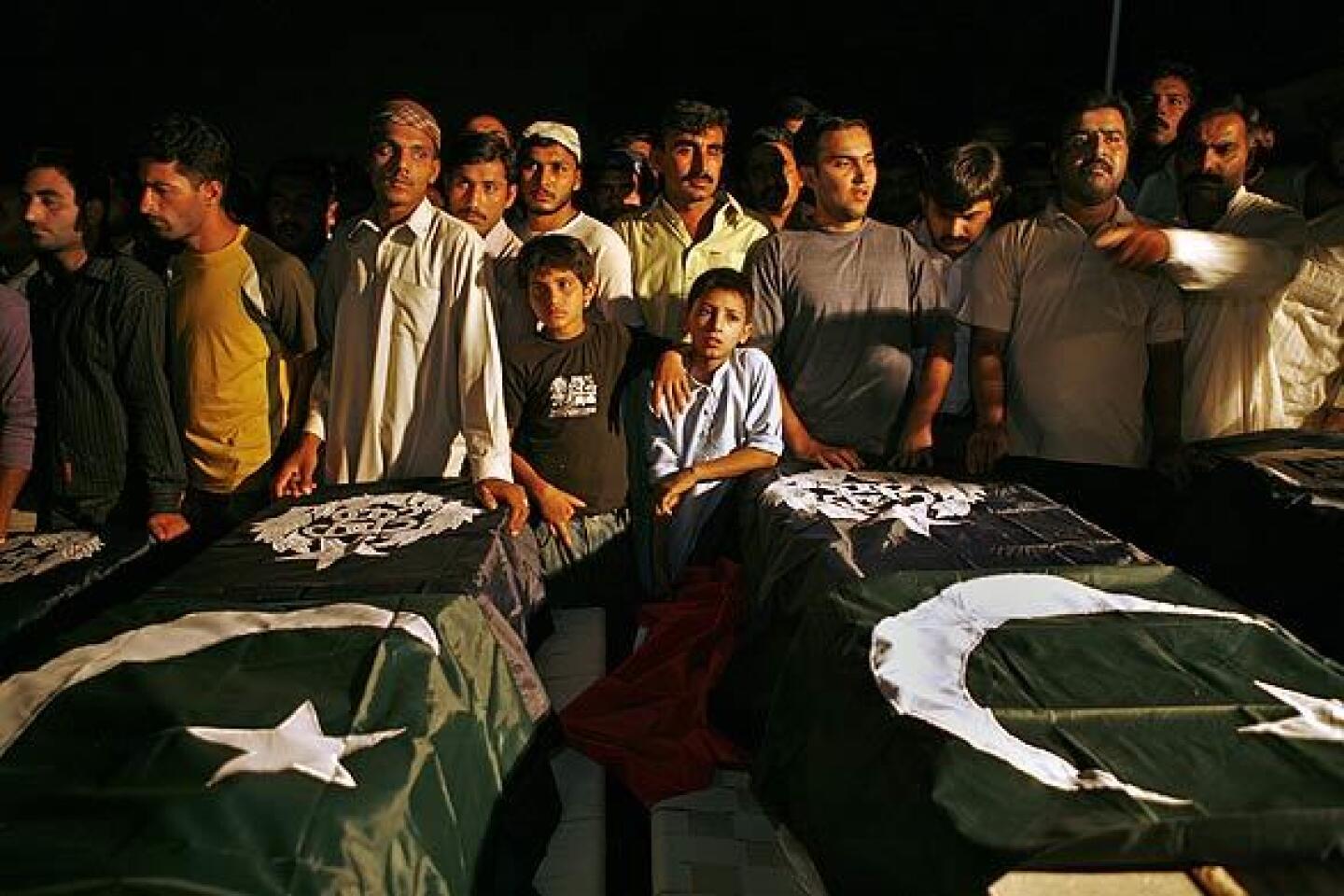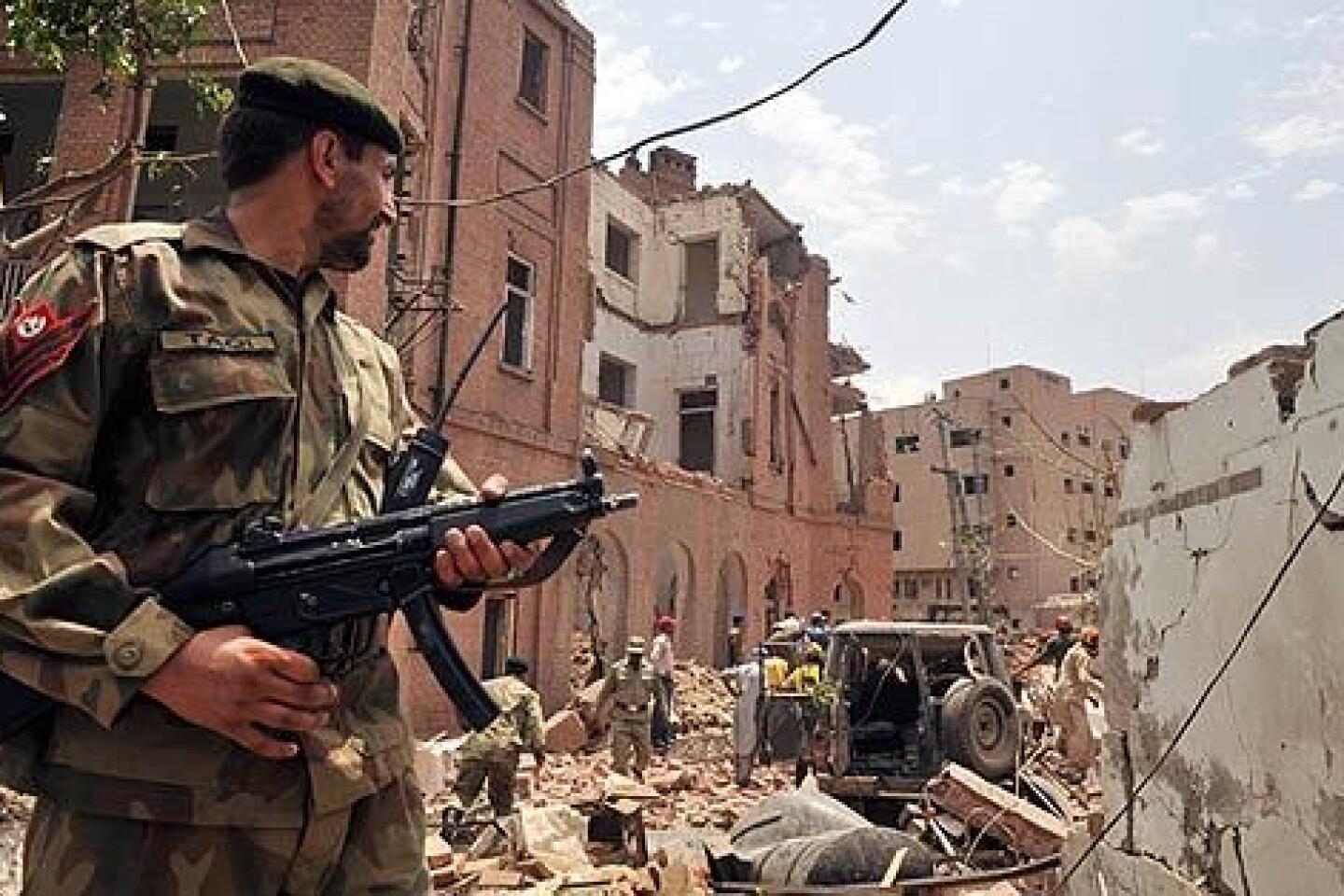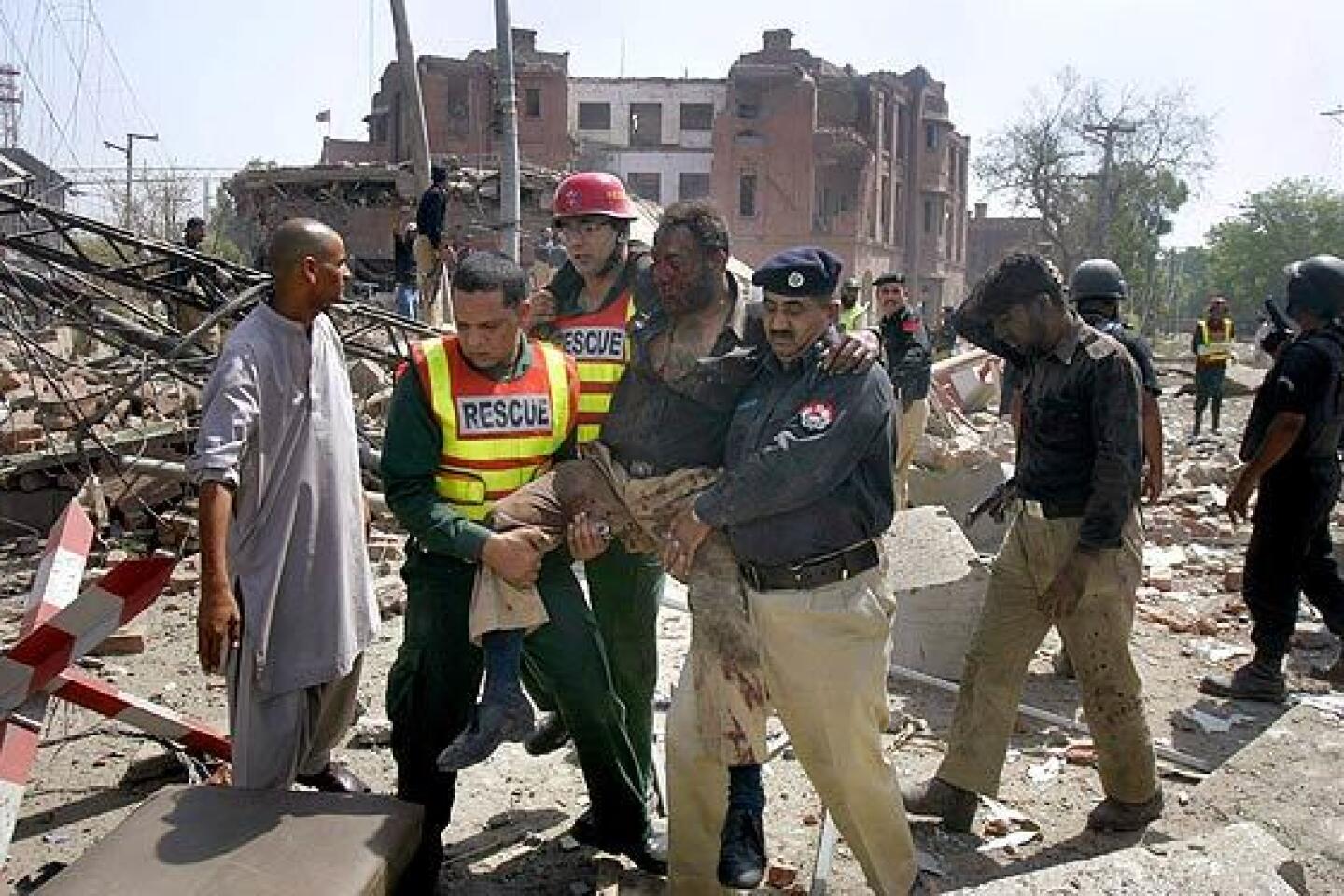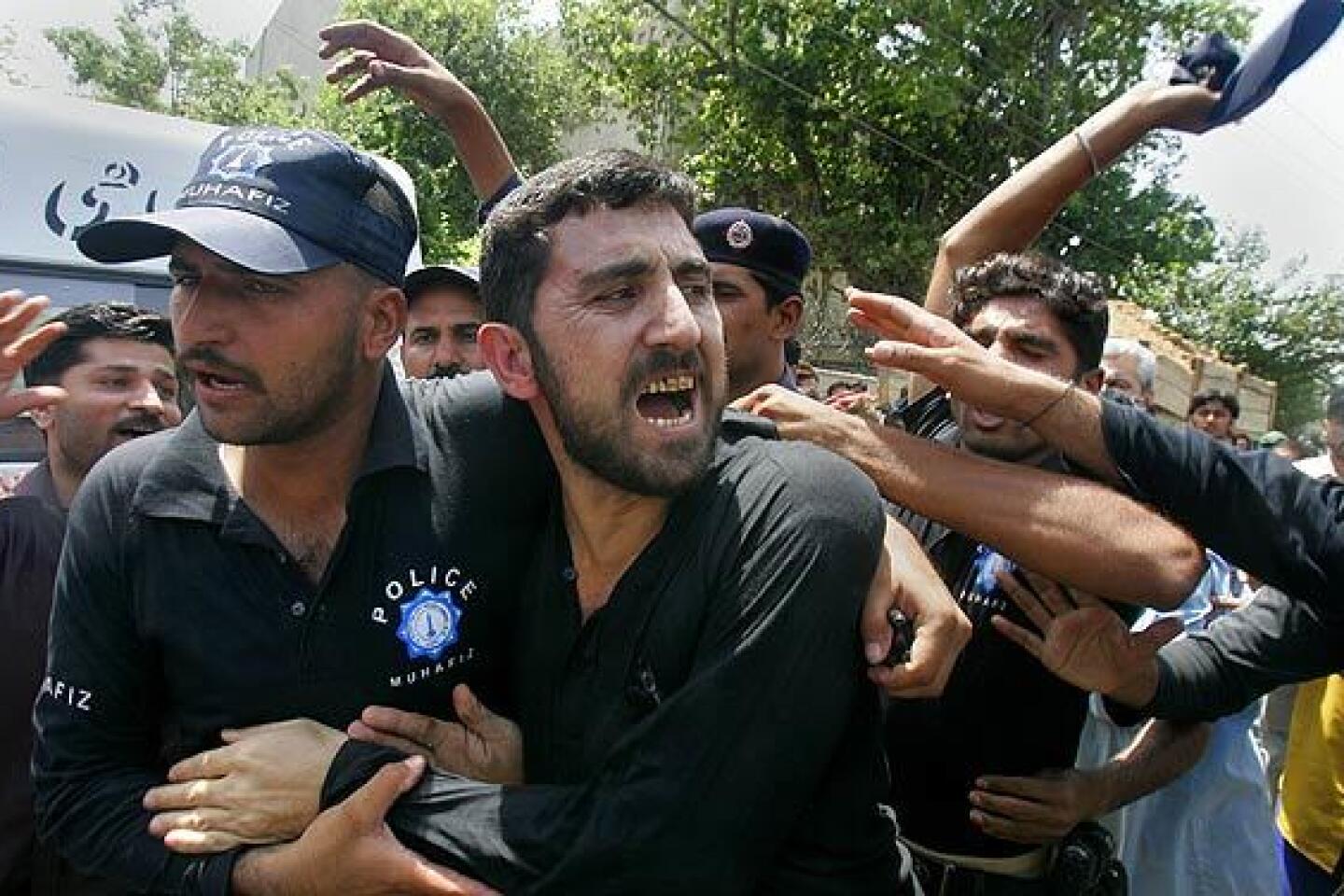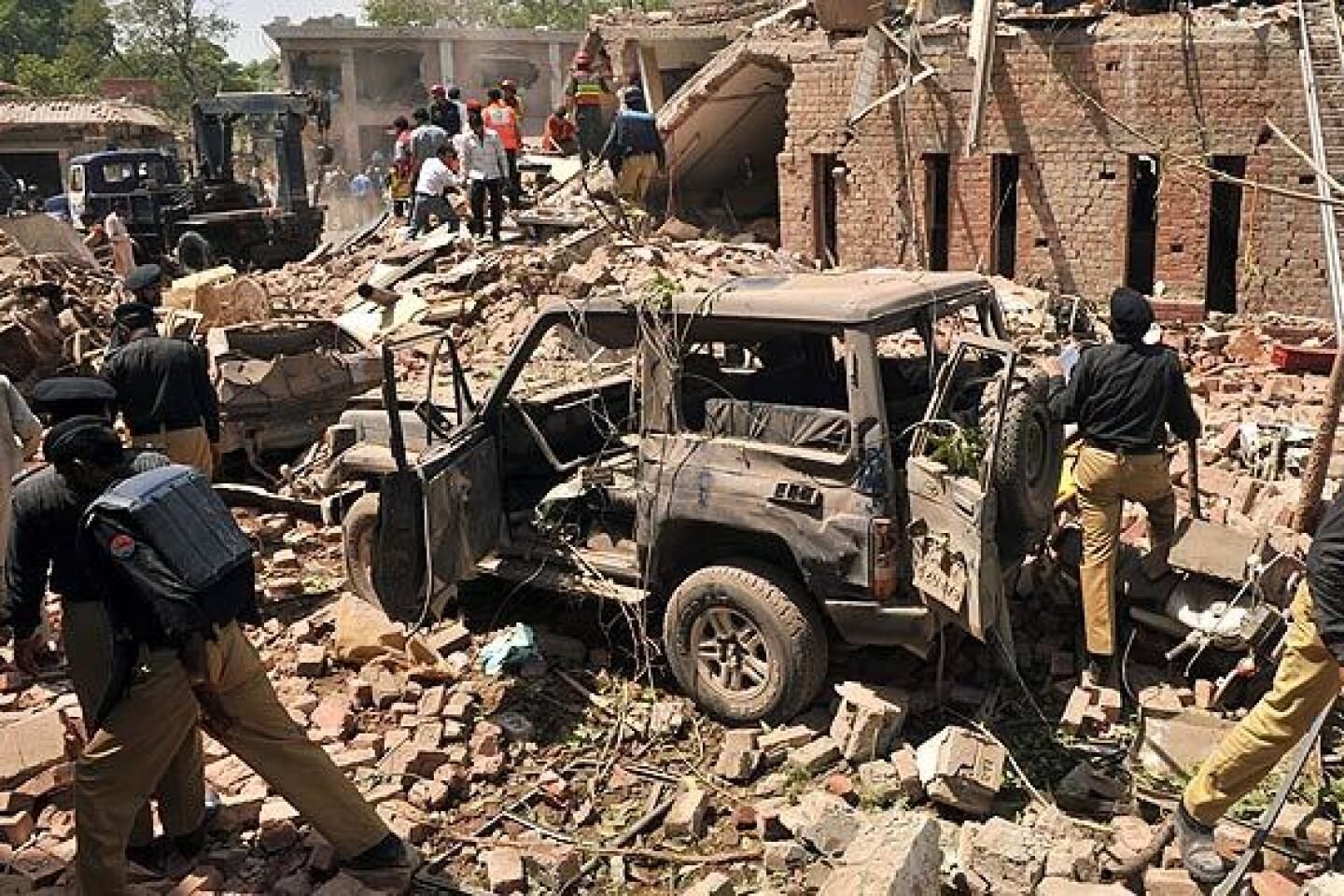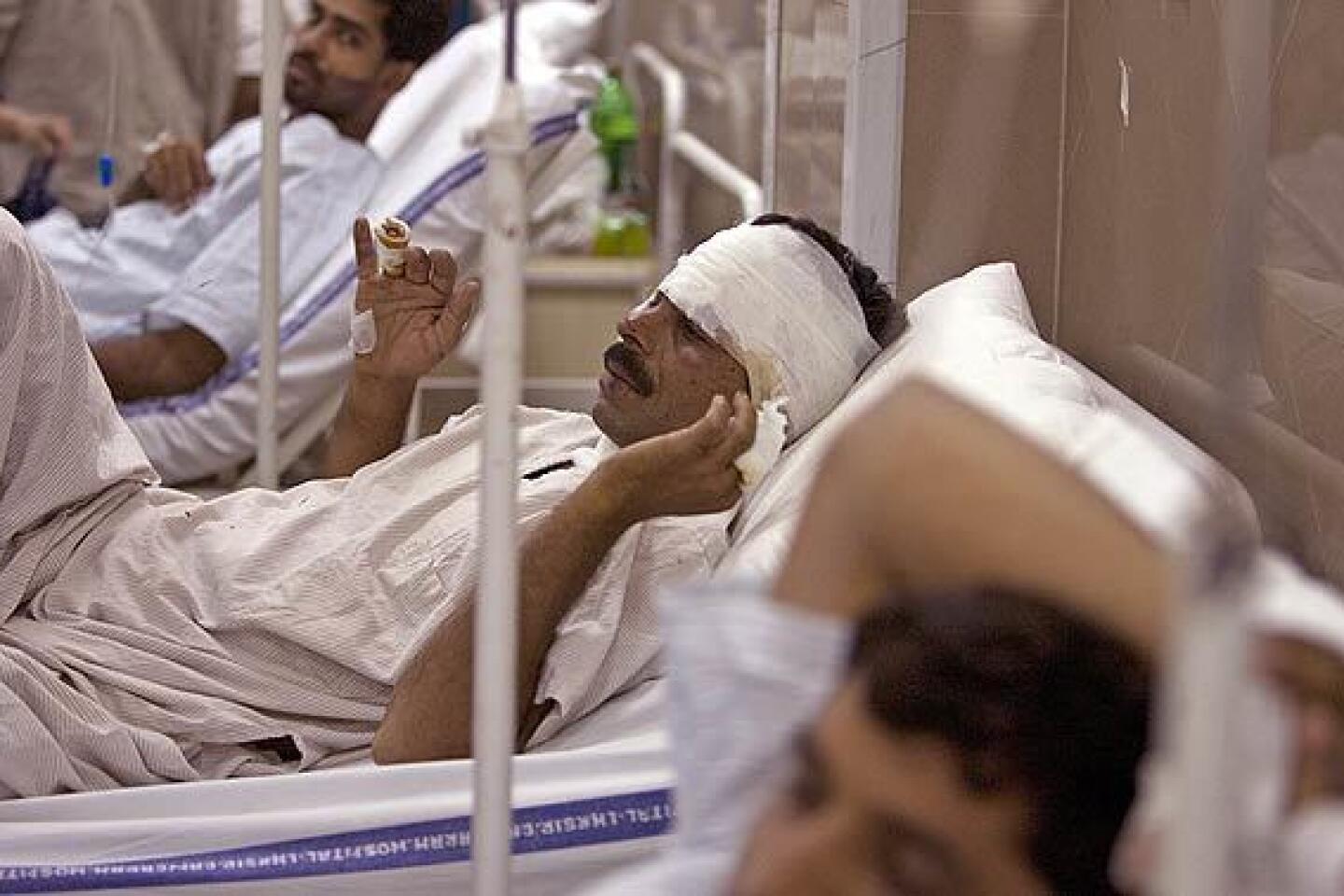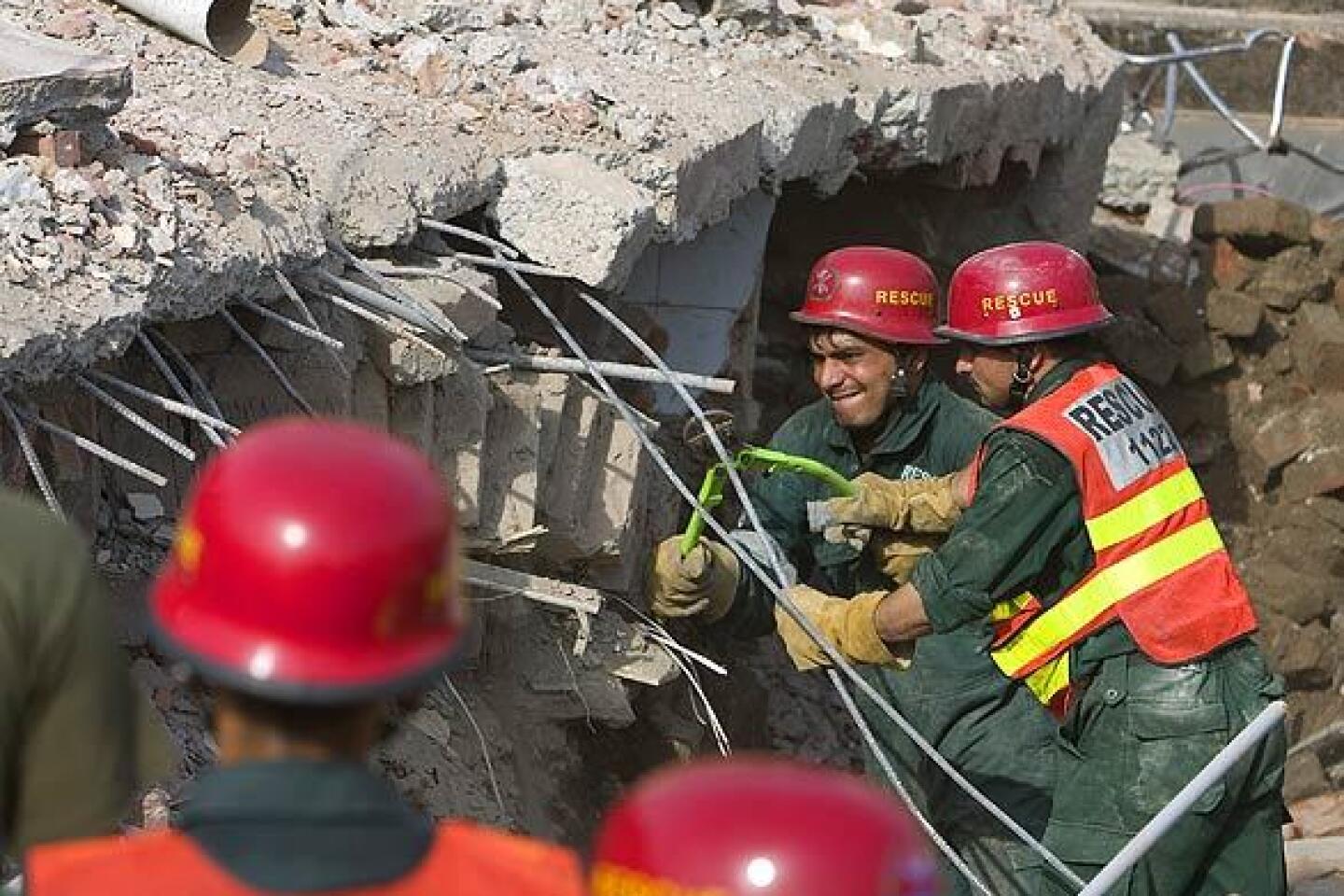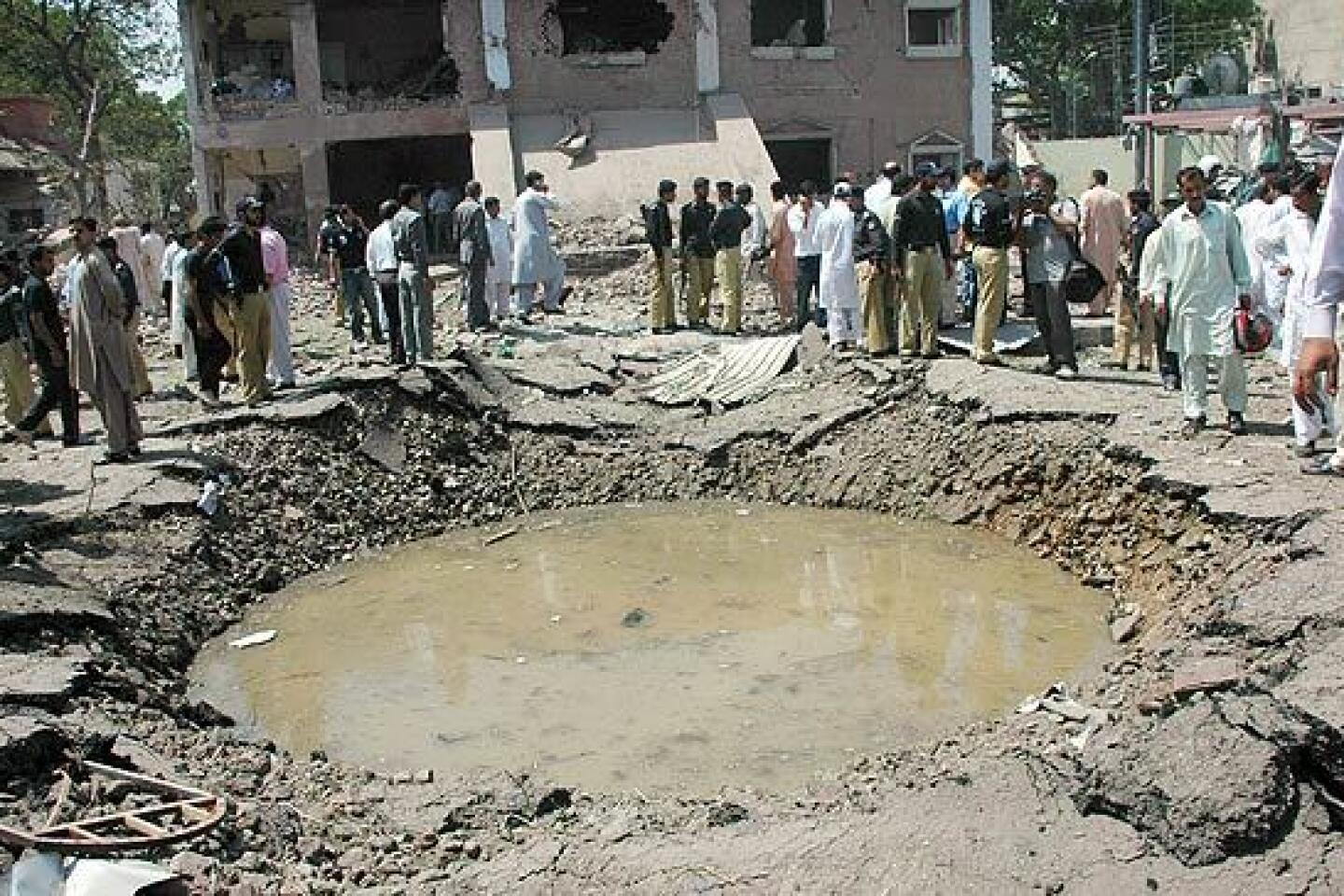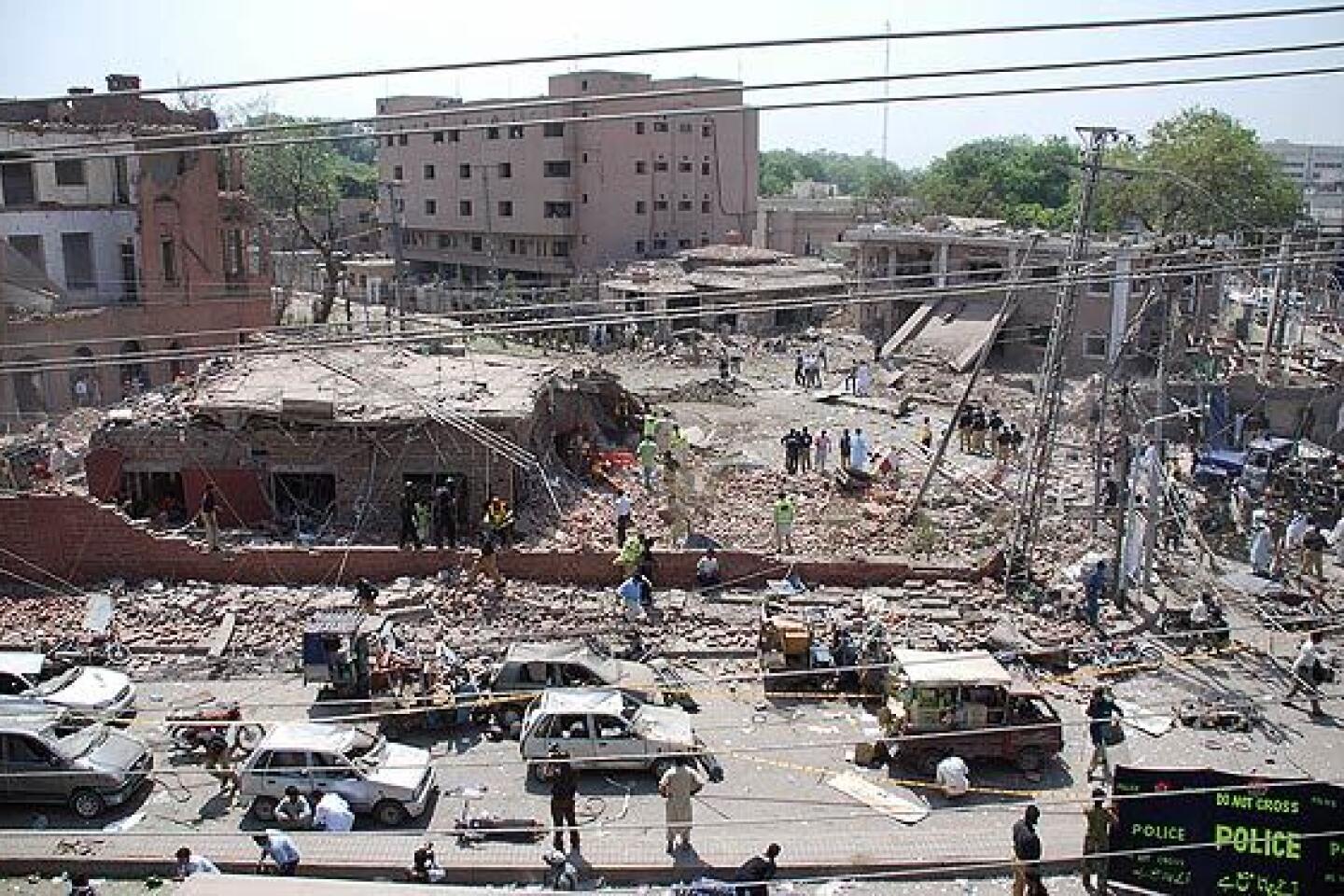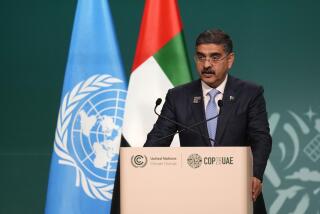Car bomb kills 30 near Pakistani security offices
Reporting from Islamabad, Pakistan, and New Delhi — A large car bomb detonated and gunmen opened fire near security agency offices in Lahore, Pakistan, today, killing approximately 30 people, wounding at least 250 and destroying several structures.
At least four men stepped from the explosives-laden car and opened fire on an intelligence agency building, Pakistani officials said, then detonated the vehicle when security guards returned fire.
No one immediately claimed responsibility for the bombing. Police said two suspects were detained.
Rehman Malik, Pakistan’s interior minister, said today’s attack, one of the largest in Pakistan this year, could be in retaliation for an army offensive against Taliban militants in northwestern Swat Valley.
“These terrorists were defeated in ... Swat, and now they have come here,” he told reporters.
A man who has a shop near the area of the blast, Khalilur Rehman, told Pakistani television that moments before the explosion, he saw a vehicle pull up. A man got out and began firing at a structure. A few minutes later, the vehicle exploded.
Analysts said that by taking the fight to Pakistan’s cities, the Taliban hopes that terrified civilians will pressure their national leaders to call off the army offensive.
“They’re trying to get publicity, sending a message to ‘stop it,’ trying to demoralize the public and hoping to get publicity for themselves through massive casualties,” said Talat Masood, a military analyst and former general in the Pakistani army. “People then start criticizing the government for not negotiating. I hope it won’t work.”
This is the third attack in the eastern city of Lahore since early March, raising fears that attacks are spreading well beyond the frontier and tribal areas near Afghanistan.
Lahore, Pakistan’s second-largest city, was an obvious target because it’s politically influential, analysts said, and is the capital of Punjab state, where about 70% of the nation’s soldiers are recruited from.
Pakistan has braced for attacks by the militants in recent months, given a history of attacks on soft targets in retaliation for army offensives.
Saleem A. Kashmiri, a high school principal in Lahore, said by telephone that the attack not only damaged the provincial headquarters of the Inter-Services Intelligence (ISI), Pakistan’s principal spy agency, it badly damaged the ambulance and emergency response service, similar to 911 in the United States, and several car dealerships in the area.
On a videotape of the incident broadcast on local television, two men emerged from the vehicle and engaged in a gun battle with building guards for several minutes. When the men were unable to enter the compound, they detonated the vehicle.
Khushro Pervaiz, a Lahore city official, said the blast razed two buildings and severely damaged several others nearby. Soldiers were deployed to the area, and emergency crews pulled injured people from the rubble of damaged buildings.
The explosion also caused the ceiling of a nearby hospital to collapse, injuring 20.
Attackers this year stormed a police academy on the outskirts of Lahore, killing several recruits and holding off security forces for hours. Gunmen also attacked Sri Lanka’s visiting cricket team in the center of Lahore in early March, killing police officers and wounding several of the players.
Despite today’s devastation, Kashmiri said, most Lahore residents appeared to take the attack in stride.
“Unfortunately, Lahore residents are getting used to this and aren’t cowed,” he said. “Within half an hour, people were back on the street. Life goes on. But our commitment to fight this becomes even greater. The vast majority, the man on the street, supports the army in fighting the extremists.”
Security analysts said the attack was generally expected, if not at an exact time and place. In fact, there were army forces stationed at the ISI building at the time of the attack, local media reported, as part of beefed-up security.
Farrrukh Saleem, executive director at the Center for Research and Security Studies in Islamabad, said he’s surprised it took this long for the Taliban to mount a major attack in a Pakistani city.
“Perhaps their capability has been exaggerated in the past,” he said. “The idea that the Taliban might take over Pakistan’s nuclear weapons is also ridiculous.”
The ISI has not been directly involved in the Swat offensive, but it is a symbol of state power and is credited with providing intelligence for the operation.
The agency also has been accused of quietly supporting extremist groups as part of its proxy war with India over the disputed Kashmir region. This, some analysts said, has blunted any offensive against militants.
Masood disputed that idea. “I think that stage is long past,” he said. “Today, the security agencies have become such a huge target, as has the army.”
Pakistan has been under pressure from the United States, other Western allies and a growing number of its own citizens to combat extremism. The army claims it has killed over 1,000 militants in its monthlong operation in Swat and neighboring areas, a figure that could not be independently verified.
More to Read
Sign up for Essential California
The most important California stories and recommendations in your inbox every morning.
You may occasionally receive promotional content from the Los Angeles Times.
